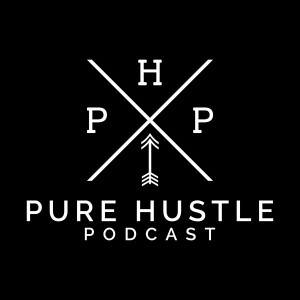

Today I'm talking with Emily at Tiffin Community Kitchen. You can follow on Facebook as well.
www.patreon.com/atinyhomestead
Muck Boots
Calendars.Com
If you'd like to support me in growing this podcast, like, share, subscribe or leave a comment. Or just buy me a coffee
https://buymeacoffee.com/lewismaryes
00:00
You're listening to a tiny homestead. The podcast comprised entirely of conversations with homesteaders, cottage food producers, and crafters. I'm your host, Mary Lewis. Today I'm talking with Emily at Tiffin Community Kitchen in Tiffin, Ohio. Good morning, Emily. How are you? I'm great. How are you? I'm good. How's the weather in Ohio this morning? ah Wonderful. It's actually going to be 85 today. That's awesome. It's going to be 90 something in Minnesota.
00:29
And I'm done. I'm going to be really happy to see this break this weekend. Yeah, it's time. It's October. It's time. Okay, so tell me a little bit about yourself and what Tiffin Community, whatever it is, Okay. All right. So my name is Emily Reilly. um joined the, it's actually a nonprofit that runs the Community Kitchen, the Farmers Markets, and the Community Gardens.
00:57
So it's Seneca County common ground and it's the nonprofit and I'm the executive director of it. Um, I joined with them in January of this year. So I've only been with them for, was it like 10 months, 10 months now. Um, so Aaron Gerlach, who is the reverend of the Episcopal church here, who started this whole program. Um, he had this huge vision. So once the kitchen was built, then they needed someone to.
01:26
actually take what his vision was and um actually start putting it into motion. So that's what I'm here to do. So I oversee the community kitchen, which is a our mission is to support and improve local food ecosystems. um The kitchen has successfully delivered um kitchen training um and we're directly supporting our local workforce to help strengthen it. um
01:56
I also run the farmers market, um which we operate every single weekend. It's awesome. It's fabulous. I love it. I've never ran a farmers market until this time. But my background is event services and hospitality. So it kind of falls right in line with everything I enjoy doing. um And then the community gardens, which I'm not a gardener, but I oversee that part as well. And it's great because we're able to put garden boxes throughout um Seneca County.
02:26
So people can go and grab their locally sourced tomatoes and cherry tomatoes and green peppers and all that kind of stuff and not have to pay for it. Because sometimes it's not affordable for everybody and we always want to make everything affordable. So that's what the nonprofit kind of is helping um develop in Seneca County. That is fabulous. I love that all three parts are one.
02:54
you know, that they all feed each other. ah So where is Tiffin? What's the nearest big city? ah So it would be between Columbus and Cleveland. Okay. I have probably driven by Tiffin on my drives from Minnesota to Maine to see my parents. Yep. So, okay. Is Tiffin a small town? Is it a suburb? Is it, what is it? Yes. Tiffin is a small community. It's a rural community.
03:22
So, you know, you have Tiffin and then you have a bunch of rural towns around it. Like you have Hopewell and Bascom, New Regal, Cary, Old Fort. So Tiffin is like the center, kind of like a little city um with all these smaller towns around it. And we're a huge farming community. So we are very rural. It's cornfield after cornfield and then you hit soybeans. it's, you know, that's why I love doing the farmer's markets because you have.
03:50
all these locally sourced vegetables and baked goods that are coming in um that you sometimes don't get ah in the cities. I lived in Columbus for eight years, loved it, but I miss living in a rural environment. Yeah, I can't imagine living in a big city again. I don't ever want to if I don't have to. um So if it's a rural area, then
04:19
How is this helping? Because I would think that people in a rural area would already have these things covered. me why it got started. So why it got started is because um we want to make sure everything is accessible. at the farmers market, actually offer, you can use your EBT and SNAP benefits. We also accept the senior coupons and WIC coupons. All that is accepted at the local farmers market, which makes it
04:48
a little more accessible for families that don't have a lot of income, don't have a lot of money to spend on this stuff. And we also provide training. So we have taken, we took a group of 12 people from the community kitchen to the local farmers market, showed them how the shop use their EBT benefits. Then they came back to the kitchen and they got to learn how to cook what they purchased. And I think that is one of the missing pieces um in this
05:17
in this community and actually in the world now that people don't know how to take fresh products, fresh produce and take it home and cook it because we're in a generation in a world now where we're always on the go. I have two kids, I won us in volleyball. So we have volleyball and the minute I get home, we're on the go. It's easy just to throw something in oven or pick up something on the way home. um But showing somebody and giving somebody the tools to help them.
05:43
It just, that's our vision and that's what we want to do in this community and for this community. Okay. So, so my, it's not really my assumption. I think it's a lot of America's assumption that if you live in a rural area, you're not in a food desert, but sometimes you are because you don't have the knowledge to use what you have. Yes, a hundred percent. That's a lot of it. And we've met, I'm on a food council policy group that we talk about food accessibility.
06:13
and how that is something that we really need to turn our focus to. we're also in the center of, so Tiffin is in the center of two college campuses. So we have Heidelberg University and we have Tiffin University, two private campuses that, you you have these students and if you're like, have a nephew that um does not have the skills to cook. You know, a lot of those skills are not taught in the high schools anymore. So we actually have reached out to local colleges and we're trying to get them into this building to teach them those basic cooking skills.
06:44
That's nice. Very nice. It's so funny that you mentioned that kids, people aren't taught to cook anymore. I am actually 6,000 words into writing an introduction to how to set up a kitchen and how to stock your pantry and your fridge and how to do basic cooking because no one is teaching that anymore. So I'm actively in the middle of writing a about the basics.
07:14
And that's awesome because we need more of that. We need to teach these skills to these kids so that, you know, when they become parents or they grow up, that they're able to not just go through the drive-through or, you know, go to the frozen section and grab something, maybe just throw it in the oven quick. That they're actually teaching their kids that, look, we can go down to this farmer's market every week, grab what we need, go home and cook stuff from it. Yeah, absolutely. And there's such, I say this all the time on the podcast, there is such satisfaction in knowing how to make yourself
07:43
a meal from scratch. There really is. Yeah, there is. It's great. And it's really impacted our community. It's brought more. um I think the farmer's markets, it gathers, it's a gathering place. It strengthens social connections, which I think people are losing now. They're not socially interacting with people. So I think having this downtown, having the community kitchen has really um brought people together, which is one of the things that why the Episcopal Church really wanted to join in on and start this community kitchen.
08:13
because people gather around food. You think in your holidays, you think at home, like that's what brings people together. So why not open a facility that kind of promotes that? Yes. And that leads me to another question. Do you guys provide our already made meals for people? So we are actually working on that right now. We are going to start working on producing frozen meals because our local Salvation Army recently lost their chef.
08:42
So they're not able to hand out hot meals anymore at this point. So we're trying to figure out a way that we can help them ah by getting ingredients from our local farmers ah and, you know, make them all up, put them in the freezer so they could come here, grab something and throw in the oven. And it's not something that's like processed food. It's, you know, those awesome vegetables. you know, we have a lot of local farmers that have steers and
09:10
You know, so we actually were donated a half a steer to the community kitchen so we can use some of that as well um to help make these meals, these hot meals for people that are really in need. Wow. Wow. That's awesome. um Yeah. And stuff that isn't already prepared is more nutritionally dense when you make it from scratch. And that's what people need. They need the things that strengthen their bodies because a strong body makes a strong person. Exactly.
09:40
And I feel like I'm being very Pollyanna, but it's true. I swear it's true. So we're rolling into fall. And so does that mean that you won't have as much fresh food because it's Ohio, it gets cold in Ohio. Yep, it gets cold. But so a lot of our farmers, uh Reem's Farm, which is right on 53, Reem's Produce Farm, they have greenhouses. Nice. They do CSA boxes all year round. um
10:06
Clay Hill Organic Farm, which comes to our farmers market, they do as well. They have greenhouses that they can grow fresh produce all year around. um So the community kitchen would like to be a storefront. At some point, we're going to be a storefront and have people be able to sell local produce all year round so that people have a place to get it. Because yes, the farmers market ends in the end of October, um but we want to still be able to make it accessible for people in town. We have a gentleman that comes from uh Southern Ohio.
10:36
that comes up and he has fresh milk and eggs and poultry and all kinds of stuff. And he meets people every single week, every single week, even when we're not in season. So he has that set group of people that, you know, want his, you know, his, you know, organic milk and all the eggs and everything like that, that people are looking for. is amazing. Oh my God, Emily, you guys are doing it right.
11:02
We're trying to, mean, we've surrounded ourselves with a lot of great people. We try to collaborate with everybody within the town and outside of Seneca County to really figure out how we can help and really make this community grow even more. Wow. Wow. I'm so impressed. So I saw on your website that you guys have the classes. So do you just have like classes for just regular people looking to learn how to cook? Yeah. So we have a whole cooking series.
11:32
basic cooking from, you know, how to cut things, how to chop things, to using the right temperature and creating sauces like your mother's sauces. We showed people how to make a roux. I think over half of them have no idea even what a roux was. Most people don't. No, most people don't know. So I took some culinary training when I was in high school, so I know what a roux is and all that stuff, but it's really cool because we also worked with the local juvenile probationary court.
12:01
During the summer, so we did a six week program where these students came in for an hour and a half to two hours every week and learn those basic cooking skills. We're doing that same with the um women empowering women in this area so that, you know, we have somebody that can watch their kids while they learn some basic cooking skills. So, and we're also teaching a baking class because, you know, everybody's sourdough I think is really big right now. And everybody wants to learn how to make it. you know, learning how to make different breads, learning how to make different, you know, pastries and
12:30
carts and things like that. um And educating people in that aspect. And then we also have fun classes. Like tonight we're doing tacos and tequila. So we try to like mix in, you know, know, some educational classes, but also have something fun. So we try to, you know, meet everybody's needs in the community um with all different variety of classes. And I'm always looking for, you know, anybody who offers any kind of suggestions. So people always say, you know, offer me suggestions that the farmers are. I write them all down because I'm
12:59
I'll put anything out there and see if it goes. Nice. Nice. Um, I have, have an idea for you may have already thought of it. little kids, like what five years old and up, they are quite capable of learning to cook, learning the basics. Do you ever do anything with kids like littler kids? Yes. Good. We just finished. Yes. We just finished a cake decorating class. So I had a woman.
13:26
that rented art because we are also a commercial kitchen that people rent. So we promote entrepreneurship. So I have one person that is renting it right now and I had another person contact me last night that wants to rent it as well because they want to go past that, you you can only do so much as a home baker. So if you want to extend your business, you kind of got to get into a commercial kitchen. So we make our commercial kitchen affordable to rent.
13:52
So people can learn and really expand their business and we have a conference room that they utilize as well. So we really foster entrepreneurship uh here at the Community Kitchen and as for Seneca County Common Ground. So we do all kinds of classes. I have young kids, my son loves to cook, but that's our next stage is offering cooking classes. So we did some cake decorating classes. They went over really well. um So now we're ready to move on to something else. Awesome.
14:20
Awesome, good. Because I am a huge proponent for kids learning to cook as soon as they are capable and not going to get hurt in the kitchen. And clearly when you're five, you might need some help from a grown up. makes a lot of sense. And honestly, my son is 23, still lives with us. And sometimes he's like, mom, how do I do this? So it's not necessarily whether they're five or they're 23, it's where they're at. Yes. But
14:47
The sooner you get a kid to learn how to cook their own food from quote unquote scratch, the more likely they are to want to continue to do it. Oh yeah. 100%. My son is like that. He loves making cookies. I'll text him. like, can yeah. Go ahead. Oh, sorry. No, you can go on. No, tell me about your son. Tell me what you're going to. No, he, so if I could, can text my son and say, Hey, can you start dinner?
15:17
And he'll be like, yeah, what do you need to make? said, well, you know, turn on the oven, start this and I'll be home in like 15 minutes. So my son can start dinner and he's only 14. My daughter's not so much. So my son, yes, 100%. Uh huh. Yup. Boys like to cook too. They really do. We're having sloppy joes for dinner tonight because I really do like manwich, but I am not going to buy a can of that stuff.
15:41
It's so simple to make homemade sloppy joes and the one part I hate is cooking ground burger because I'm terrible at it. I cannot get it small enough. I can't break it up enough. And so my husband and my son actually cook up the burger and then I make the rest. You know, I put the rest of it together and um my son's like, why can't you do this? And I said, I don't know. just, that's one of the things I suck at cooking is ground burger.
16:09
So he'll be doing it or my husband will be doing it and then it will become something very much like manwich or whatever you buy at the store. But the only ingredients are brown sugar and tomato sauce and garlic powder or actual diced garlic, a little bit of onion and that's pretty much it. And it's really good and nothing in there is bad for you. Yeah. And I think that people just don't realize how easy it is to make something simple like that. It's easy for the grab the can.
16:39
But it's easier to have those supplies on hand. So then you can make it at any time. Yeah. And it's like 20 minutes from start to finish before you're eating. just, it's so funny when I talk to people and I'm like, well, I don't really cook because I don't have time. And I'm like, well, how long does it take you to order something, get in the car, drive to get it, come home and eat it and it's barely still warm. And they're like, oh, half an hour. Like, oh, you could have made this in 20 minutes at home and be eating it hot.
17:09
Yep, exactly. And that's why the community kitchen is great because I think it gives us that ability to teach that and to have those resources available. And if somebody can't afford to come to one of our classes, I never want that to be a reason why you don't come. So we have a fund that's paid through the church that allows people to take classes. If they can't afford it, they reach out to me and I put them through. Because I never want somebody not to be able to do it because of, you know, they just can't afford it. It's unfair. Everybody deserves to learn how to cook.
17:40
Oh, absolutely. And they need to. I keep saying this on almost every podcast I've done in the last few months. I'm like, learn to cook. It is an important skill. It is an impressive skill if you get good at it. Your friends will want to come dinner all the time. And right now, if you know how to cook, you are going to save yourself about half on your grocery bill. Yes, definitely.
18:07
And with the cost of food right now, I'm all for saving half on my grocery bill. Same here. It is downright painful right now to buy groceries. um Really thankful for our garden. We have like 20 gallon size Ziploc bags of tomatoes in the freezer that we're going to be canning in November when we can open the windows, we can cool the house off. And that's all going to go into tomato sauce. Yeah.
18:35
I can't believe how much a can of tomato sauce costs right now.
18:42
Yeah, it's crazy. My mom just canned all of her tomatoes that she had in her garden as well. Yeah. And that's another thing that I want to tell people is that you don't have to can what's in season right now if you have a freezer. peaches were coming in at the store or at the My Fruit Truck thing or whatever months ago. If you don't have time to do that when you have the produce sitting in front of you,
19:11
If you can freeze it, you can can it later.
19:15
Exactly. And people just don't, they just don't, they don't know. You know what I mean? That they, you know, you can't do something that you don't know about. Right. Exactly. That's why I started the podcast. I was like, so many people don't know these little tiny things that would help them. And there are so many people doing these things. I was like, I need to talk to people who are doing it because then they can share their information and people will be inspired to do it themselves. I hope. Yeah, I think so too. I think when people come in the markets, they get, they get inspired.
19:45
You know, they see all these fresh produce and everything that they can do. And we uh even cook up some of the vegetables right there so that you get the smell and you, know, it entices people to come walk by. What are you cooking? Oh, you can grill that? No way. You know what I mean? So just doing stuff like that, you know, it gets people excited. Yeah, absolutely. So I don't want to be nosy.
20:07
But I know that running an organization like yours costs money. is it, do you fund it with fundraisers? Do people donate? How does it work? Yes. So we have a great group of people that we surrounded ourselves with. We do fundraisers. I do a lot of grant writing and we have a lot of donations. So this um church actually helped fund this building. I think they raised two points, two point something million.
20:38
to fund this kitchen, to fund this facility. I mean, it was a long campaign, um but they did it. I mean, there was a lot of help in the community. There was a lot of support. um I'm still amazed of how much support we have for this kitchen from this community, because it is just amazing. Everybody wants to help. Everybody wants to donate. Everybody wants to see it be successful. And I think that's what's great about Tiffin is that we're very good at collaborating with each other. All the small businesses work together very well.
21:06
So if I need something, the owner of the turntable in downtown Tiffin, he buys all of his produce and stuff from all these local vendors at the farmers markets every week. And he also teaches our classes. So it goes full circle, you know, he's going from, you know, instructing people how to teach this stuff to making gourmet food, which is amazing. I am sitting here smiling so big. I love everything you're doing and everything you're telling me about it. So I have
21:36
I have a question you may not have an answer. don't know. um If someone comes in to the community kitchen and they take classes to learn how to cook and they become really good at cooking and they want to start a cooking business, like they want to sell their goods that they make, do you guys like mentor them into that business or do you have a connection with someone who can help them with their entrepreneur journey?
22:07
We do a hundred percent. So we are actually connected with Tiffany University has a fellowship for entrepreneurship. So we foster those fellowships. They come here, they learn about, um whatever they want to go into, you know, where it's like a big brainstorming sessions and you know, I want them to come with their ideas. Um, and we have a lot of incredible entrepreneurs within, um, this town that really helps and really guides them.
22:35
on what they need to do. And this, another thing we're doing is I'm offering a small business seminar that will have the health department here. Miranda Hoffman will be here from small business. have local entrepreneurs that own restaurants and food trucks that are going to come and talk so that I can give them the information that they need to be successful in whatever they decide to do. Because I think you can't be successful unless you have the tools and it's all about networking and knowing people.
23:04
So, you I'm bringing in the resources I have to help local entrepreneurs be successful because in restaurants, own your own bakery, doing anything like that, it's hard. It's not an easy thing. A lot of people think, oh, it's going to be lots of fun. Let's open up a restaurant. they don't, until you get into it, you don't realize how stressful it is and how hard it is and difficult. um So I think having classes like that here um and giving them realistic expectations. Listen.
23:32
There's times when you're going to go home and you're like, this is not going to work. And everybody thinks that, you know, and handing out those business cards. So if they have questions or concerns, um, that they can reach out to them and say, Hey, I was at that seminar, you know, you talked about this. Is there anyone who can meet? So that's what I'm hoping. And I already have, think 15, 20 people signed up for that class and it's free. when is it? December 1st. Okay. From, six to 8 PM.
24:01
You know, it's free. Anybody can come. ask people to register just so I can set up enough chairs, but I'm welcoming everybody. I want people to come here and also see the kitchen. Um, cause this could be a space that they could rent as well. Nice. And how I don't want to, I'm so worried about asking questions that are intrusive. How much is it to rent the kitchen? So we charge, um, uh, from zero to 60 hours. It's $250. Anything over that is 500.
24:31
So we made it so that everybody can pretty much afford it. I looked up in the surrounding area, how much it costs to rent a commercial kitchen. It ranges from 200 to 1500 to 2000. But I didn't want to do that. I want people, because the hardest part is finding a facility that you can afford. And when you starting out, you don't have money. So I wanted to make it accessible. And as the common ground and as our board, they wanted to make it accessible as well.
24:58
So I said, let's start by charging 250 and if it continues to build and we might have to raise the price, but I don't want it to never be affordable for somebody. I always wanted to be affordable. Wow. I'm even more impressed now. God, you guys are doing such a great thing for your community. Do you have a success story from someone that you had come in and take your classes?
25:28
Um, so we just started doing classes. mean, I have an entrepreneur that's in there right now. That's actually baking as we speak in the kitchen. I would think that she's a success story. Um, she's now selling at a storefront in Fremont. Um, she sells at the farmer's market. She's starting to get orders in. So I think that to me, that's a success, you know, we've we've helped her, you know, take on that. And I've helped her like, cause she's like, well, should I buy bulk food? I said, yes, you need to buy stuff in bulk.
25:57
Because growing the Kroger's or going to Walmart is not going to be economical. so I introduced her to Smith foods, who is our local distributor here. Um, and so, you know, it just giving, giving them those, um, what's the word for it? Insider, insider, you know, those connections that like, Hey, you know, like she's talking about packaging. was like, Oh, I think I might know by somebody that does packaging. Let me reach out to them and see if they can set up a, a little demo for you, you know,
26:27
But you know, I think that she's a success. name is Jen Inc. and she is Jen's Caked Up Cookies and they are delicious. She gives me one almost every day and I'm like, oh, I'm gonna need to stop eating all these cookies. Uh huh. Yeah, that's the worst part about being a baker is you cannot eat everything because you will be a house. Yes. What kind of cookies does she make? So she makes, she does a Dubai chocolate one, which is really good because that's like big thing right now. She does
26:56
an upside down caramel apple cookie. Yeah, she does um a banana like a banana cream pie cookie. Oh, and she does a white, white chocolate pumpkin cookie. Nice. They're everything she has is delicious. When did she start? She just started a couple weeks ago. So she made that of her house, but she didn't want to have to change your recipes.
27:23
So I don't know all the standards of the cottage law, but she wanted to continue using certain ingredients and in order to that, she had to find a commercial kitchen. Yep. So she reached out to us and I was like, yeah, let's definitely let's go with it. And she started out renting a kitchen for the two 50 price and she's picked up so much business that she's had to increase it. So she's here almost every morning baking. So it's incredible. I like seeing that it always smells delicious here.
27:52
Yeah, I was going to say it must be unbearable. Probably why I eat them every day. Yeah, you're making me want cookies, Emily. This is not helping and I'm not making cookies today. So my mouth is literally watering as you talk to me about what she does. That's so cool. And yes, that is absolutely a success story and that is on her, but it's also on you guys and how you've helped. Yeah, I love it. It makes, don't know, it's a good feeling to help somebody.
28:21
move forward and to help them do something they really enjoy because I think in life you really need to find something in life that you enjoy doing. Yes, it helps. I love what I do. I love working in all these different areas. Yeah, I'm going to illustrate this for the listeners really quick. My husband worked in a job that he basically hated for 25 of the 30 years that he worked at it and he quit.
28:47
He gave up. was like, I need to find something else. My mental health is suffering from my job. He went into the same industry at a different company and he loves it now.
28:59
Yeah, it's crazy. So yes, you can't stay in a profession that you hate because it will kill you. It will ruin you. So I love that you and your organization are helping people to find the thing that they love to do that brings them joy and then pushing them forward into being successful at it. That is amazing.
29:25
Thank you. Yeah, we love it. I'm happy doing everything I'm doing right now. I don't know how I just have I but I have a passion for hospitality. I've been in it for 20 plus years. So I love this industry. I love everything about it. I love the fast pace. I love meeting all the different people. So I really enjoy what I do. Good. And I mean, hospitality is one of those things where you can be doing what you're doing right now. Or you can be, I don't know, a travel agent who
29:53
people who have more money than God into resorts that are crazy beautiful. And honestly, think what you're doing is far more important.
30:05
I would agree. All right, Emily. I try to keep these to half an hour. I so appreciate your time and sharing everything you shared. And I hope when people listen to this, they have the same happiness bubble in their chest that I have right now because, oh my goodness, you're doing such a wonderful thing. How can people find you? So we are located in Tiffin, Ohio. You can find us on Facebook at Tiffin Community Kitchen. We also have a website, tiffincommunitykitchen.com.
30:34
So feel free to come look us up on Facebook or look us up on Google. And anybody can just get hold of you and be like, I'm interested in doing this help. Yep. Yep. Anytime. I'm always looking for volunteers. I'm always looking for new ideas or really anything. So um yeah, I'm open to anything. You have an open door policy. I have an open door policy. Awesome.
30:59
All right, as always, people can find me at atinyhomesteadpodcast.com and go check out my Patreon. It's patreon.com slash atinyhomestead. Emily, I loved this so much. Thank you so much for your time.
31:16
You're very welcome. right. Have a great day.
More Episodes
All Episodes>>You may also like
Create Your Podcast In Minutes
- Full-featured podcast site
- Unlimited storage and bandwidth
- Comprehensive podcast stats
- Distribute to Apple Podcasts, Spotify, and more
- Make money with your podcast











